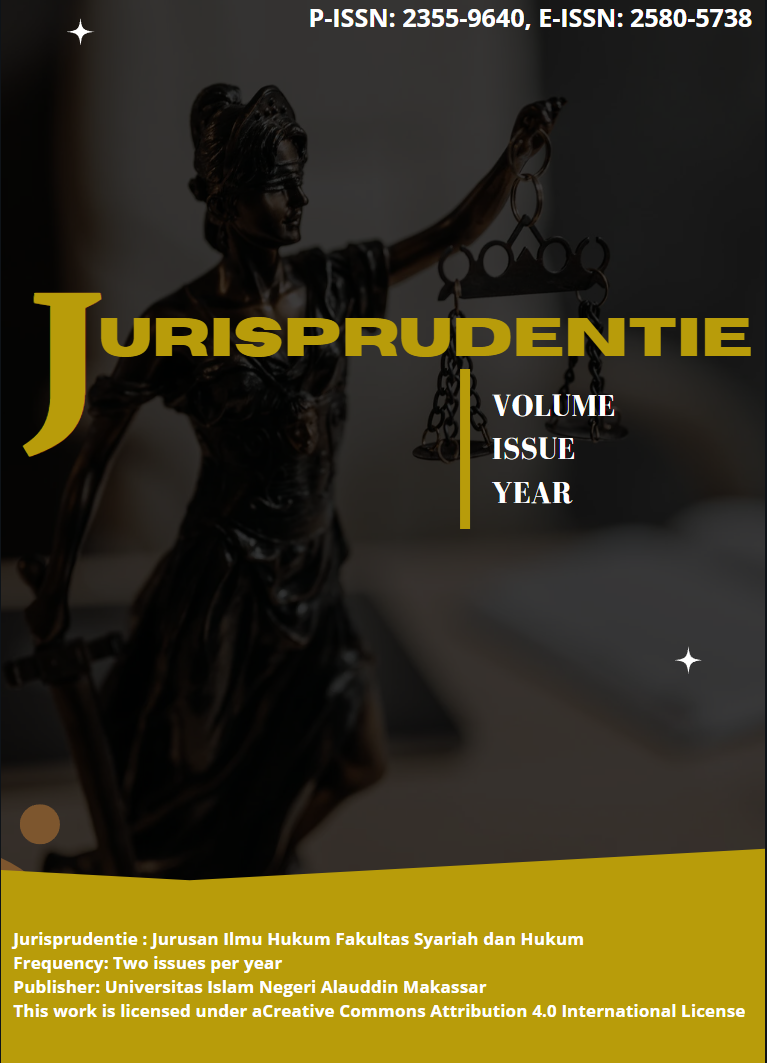The Urgency Of The Imposition Of Value Added Tax (Vat) On Digital Products With The Type Of Smartphone Applications In The Era Of The Industrial Revolution 4.0
Abstract
The current era of globalization makes Indonesia can easily develop to compete with other countries. Until now, Indonesia is occupying the Industrial Revolution Era 4.0 so that public awareness and appreciation is needed. The application growth, which is already high and widely used by the public, is considered to be a new source of income for the state. Due to the growth of applications and their increasing number of users, smartphone applications have become public consumption, so they can be included as objects of Value Added Tax (VAT). The imposition of VAT on smartphone applications can greatly increase state revenues due to the very high number of smartphone users in Indonesia. Through the results of this study, VAT on smartphone applications is considered to be effective if it can be used as a means to increase state income and create justice for all business actors, both conventional and digital.
References
Journal
D.P. Damara. et al. “Pengaruh Penerapan Pajak Barang Mewah atas Smartphone
terhadap Perilaku Konsumen”. Jurnal Administrasi Bisnis (2018).
D. Pratami dan I. A. Puspita. “Desain Model E-Business Aplikasi Mobile (Studi Kasus:
E-Makanan Padat Pendamping Asi)” Jurnal Rekayasa Sistem dan Industri (2015).
H. Matnuh. “Law as a Tool of Social Engineering.” ICSSE (2018).
H. Siti. “Kepatuhan Hukum Kawasan Dilarang Merokok Menurut Teori Lawrence M.
Friedman” Supremasi Hukum (2019).
H. Y. Djasmani. “Hukum sebagai Alat Rekayasa Sosial dalam Praktek Berhukum di
Indonesia”. Masalah-Masalah Hukum (2011).
L. Ansori. “Reformasi Penegakan Hukum Perspektif Hukum Progresif”. Jurnal Yuridis
(2018).
Lawrence M. Friedman dan J. Ladinsky. “Social Change and the Law of Industrial
Accidents.” Columbia Law Review Association (2016).
L. Nazaruddin. “Teori Hukum sebagai Sarana/Alat untuk Memperbaharui atau
Merekayasa Masyarakat.” Pakuan Law Review Jurnal (2017).
M. Ridwansyah. “Mewujudkan Keadilan, Kepastian dan Kemanfatan Hukum dalam
Qanun Bendera dan Lambang Aceh” Jurnal Konstitusi (Juni 2016).
P. W. Lodang. “Analisis Penerapan Kebijakan Pajak Pertambahan Nilai atas Transaksi
E-commerce pada Direktorat Jenderal Pajak.” Jurnal Mandiri (2019).
R. Andi. et al. “Penerapan Surat Pemberitahuan Elektronik (E-SPT) Masa VAT terhadap
Pemenuhan Pemeriksaan pada Wajib Pajak Badan (Studi Kasus KPP Madya Makassar)”. Jurnal Riset Perpajakan (2020).
S. Arsyad. “Efektifitas UU ITE dalam Pengaturan Perdagangan Elektronik (E
commerce)”. Jurnal Hukum Bisnis (2010).
Setiadi Alim Lim dan Lilik Indrawati. “Perlakuan Pajak Pertambahan Nilai Transaksi E
commerce di Indonesia.” Jurnal Bisnis Perspektif (Januari 2016).
S.M. Ali dan V. Syaron. “Apakah Pajak Pertambahan Nilai atas E-commerce dapat
Diterapkan di Indonesia?” Journal of Accounting Science and Technology (2020).
T. M. Intan. et al. “Pengguna Smartphone dalam Menunjang Aktivitas Perkuliahan oleh
Mahasiswa Fisipol Unsrat Manado.” E-journal Acta Diurna (2017)
Book
C.S.T. Kansil. Pengantar Ilmu Hukum dan Tata Hukum Indonesia. Jakarta: Balai
Pustaka, 1986.
F. Munir. Teori-teori Besar (Grand Theory) dalam Hukum. Jakarta: Kencana
Prennamdela Group, 2013.
Hidayatullah. Urgensi Transaksi Pembayaran Penerimaan Negara Bukan Pajak Melalui
Aplikasi Your All Payment terhadap Pelayanan Jasa Akta Badan Hukum Notaris. Makassar: Universitas Hasanuddin, 2020.
M. Abdul Kahir. Hukum dan Penelitian Hukum. Bandung: PT. Citra Aditya Bakti, 2015.
R. S. Brotodihardjo. Pengantar Ilmu Hukum Pajak. Bandung: PT. Refika Aditama, 2013.
S. Jonathan. Perdagangan Online: Cara Bisnis di Internet. Jakarta: PT. Elex Media,
Once an article was published in the journal, the author(s) are:
- to retain copyright and grant to the journal right licensed under Creative Commons License Attribution that allows others to share the work with an acknowledgement of the work's authorship.
- permitted to publish their work online in third parties as it can lead wider dissemination of the work, with an acknowledgement of its initial publication in this journal
- continue to be the copyright owner and allow the journal to publish the article with the CC BY license
- receiving a DOI (Digital Object Identifier) of the work.


